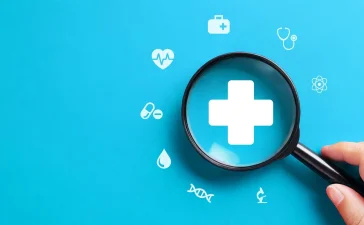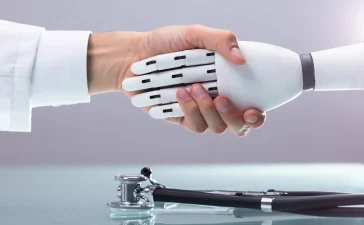Health and medicine are at the center of humanity’s most urgent challenges. With rising life expectancies, growing chronic diseases, and global threats like pandemics, the medical field is under constant pressure to evolve. Fortunately, advances in science and technology are revolutionizing the way we diagnose, treat, and prevent illnesses. From artificial intelligence in diagnostics to gene editing, telemedicine, and personalized care, the future of medicine is being shaped by innovations that promise to make healthcare more effective, accessible, and precise.
This article explores the key trends driving transformation in health and medicine, the opportunities they bring, and the challenges the world must overcome to ensure these innovations benefit all.
1. The Rise of Personalized Medicine
For decades, medicine followed a “one-size-fits-all” model, where treatments were designed for the average patient. Today, breakthroughs in genomics and biotechnology are making personalized medicine possible—care tailored to an individual’s unique genetic profile.
-
Genomic sequencing now allows doctors to identify genetic risks for conditions like cancer, heart disease, or Alzheimer’s before symptoms appear.
-
Pharmacogenomics, the study of how genes influence drug response, is helping clinicians prescribe the right drug at the right dose, reducing side effects and improving outcomes.
-
Cancer treatments are becoming increasingly targeted. For example, immunotherapies that activate a patient’s own immune system to fight tumors are showing remarkable results.
Personalized medicine is still expensive, but as technology becomes more affordable, it could redefine preventive care and chronic disease management worldwide.
2. Artificial Intelligence in Healthcare
Artificial intelligence (AI) is one of the most disruptive forces in modern medicine. Its applications range from diagnostics to hospital management, offering speed, accuracy, and efficiency.
-
Medical imaging: AI algorithms can analyze X-rays, MRIs, and CT scans faster than radiologists and often detect abnormalities invisible to the human eye.
-
Predictive analytics: AI tools can process vast amounts of patient data to predict disease outbreaks or identify individuals at high risk of developing conditions like diabetes.
-
Virtual assistants: Chatbots and AI-powered health assistants are guiding patients in monitoring symptoms, managing medications, and even offering mental health support.
However, AI adoption raises ethical issues, including data privacy, algorithm bias, and the potential replacement of certain medical jobs. The challenge will be to integrate AI as a complement—not a substitute—to human care.

3. Telemedicine and Digital Health
The COVID-19 pandemic accelerated the global adoption of telemedicine, changing how patients access healthcare. Virtual consultations, digital prescriptions, and remote monitoring tools are now integral parts of modern healthcare.
-
Convenience: Patients in rural or underserved areas can access specialists without long travel times.
-
Chronic disease management: Wearable devices track heart rate, blood sugar, and physical activity, allowing doctors to monitor patients in real time.
-
Mental health support: Online therapy platforms are making psychological help more accessible.
While telemedicine expands access, it also highlights inequalities: not all populations have stable internet or the digital literacy needed to benefit fully. Addressing this digital divide will be crucial in the coming years.
4. Regenerative Medicine and Stem Cell Therapy
One of the most promising frontiers in medicine is regenerative medicine, which focuses on repairing or replacing damaged tissues and organs.
-
Stem cells can develop into different types of cells, offering potential treatments for spinal cord injuries, Parkinson’s disease, and heart failure.
-
Tissue engineering is advancing toward creating lab-grown organs, which could one day solve the problem of transplant shortages.
-
Clinical trials in regenerative therapies are showing encouraging results, though large-scale implementation is still years away.
This field raises both hope and ethical debate, especially regarding the use of embryonic stem cells. Nonetheless, regenerative medicine could radically change how we treat previously incurable conditions.
5. Gene Editing and CRISPR Technology
Perhaps no innovation has sparked as much excitement—and controversy—as CRISPR-Cas9, a powerful gene-editing tool.
-
CRISPR allows scientists to precisely alter DNA, potentially eliminating genetic diseases like cystic fibrosis, sickle-cell anemia, or Huntington’s disease.
-
In agriculture and public health, CRISPR is being studied to combat mosquito-borne diseases by altering insect populations.
-
Researchers are also exploring CRISPR’s role in cancer treatment and HIV prevention.
However, gene editing raises profound ethical questions. Should we allow “designer babies”? How do we prevent unintended consequences in the human genome? Balancing innovation with responsibility will define the future of this technology.
6. Global Health Challenges: Access and Equity
Despite breakthroughs, global healthcare systems face critical challenges:
-
Unequal access: High-tech solutions are often concentrated in wealthy nations, leaving developing countries behind.
-
Cost of innovation: Advanced therapies like CAR-T cell treatments or gene editing remain prohibitively expensive.
-
Workforce shortages: Even with new technologies, the world needs millions more healthcare workers to meet rising demand.
-
Aging populations: Countries worldwide are struggling to adapt their systems to an increase in chronic diseases linked to longer life expectancy.
Ensuring that innovation translates into equitable care is perhaps the greatest medical challenge of our time.
7. The Future Outlook
Looking ahead, the convergence of biology, technology, and data science will reshape medicine in ways we are only beginning to imagine. Some emerging trends include:
-
Nanomedicine: Using nanoparticles to deliver drugs directly to diseased cells.
-
Brain-computer interfaces: Helping paralyzed patients regain movement.
-
Preventive healthcare: Shifting focus from curing disease to maintaining wellness through continuous monitoring.
-
Global collaboration: Pandemic responses have shown the importance of international research sharing and rapid vaccine development.
The future of medicine is not just about technology—it is about building systems that prioritize human well-being, equity, and ethical responsibility.

Conclusion
The health and medicine landscape is undergoing a historic transformation. From personalized care and AI-driven diagnostics to regenerative medicine and gene editing, innovations are opening new possibilities for treatment and prevention. Yet progress comes with challenges: affordability, ethics, and access must remain at the center of global healthcare strategies.
Ultimately, the future of medicine will not be defined only by science, but by society’s ability to apply these breakthroughs responsibly and fairly. If done right, the 21st century could mark a new era where health is not a privilege, but a universal right supported by innovation.





